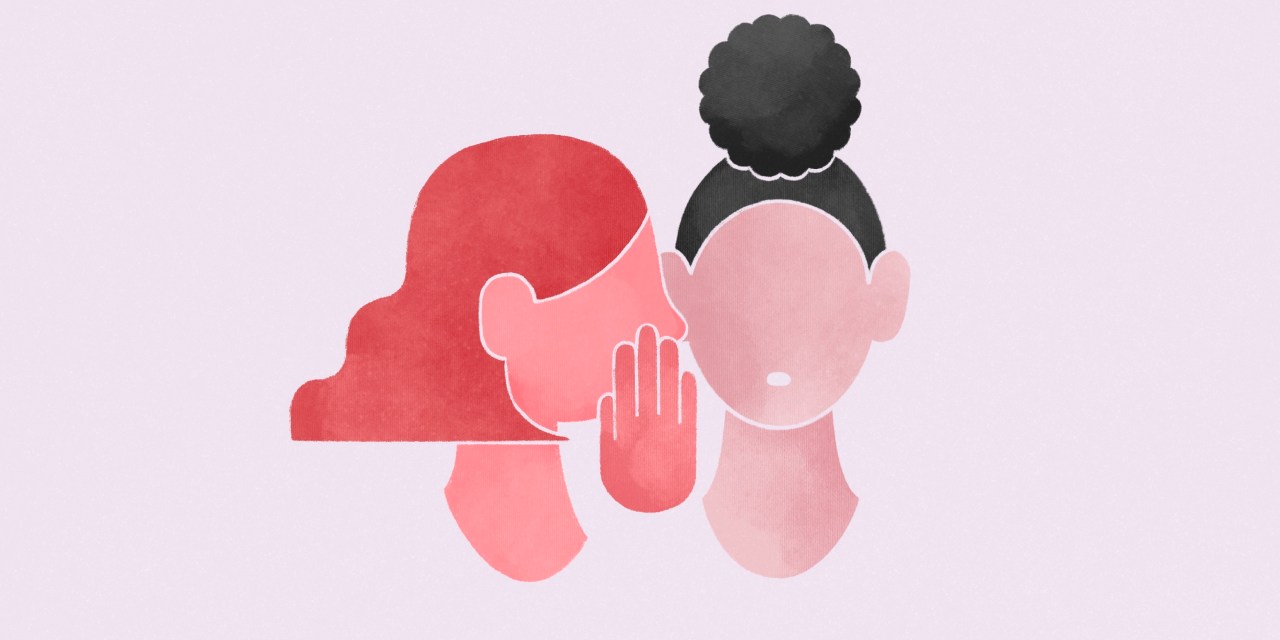Why are we still talking about ‘mean girls’ at work?

Modern workplaces can feel a lot like being back in high school — especially if you’re dealing with a so-called office mean girl.
The term, which took off after the 2004 movie Mean Girls, resurfaced in the aftermath of the third movie this January – prompting some women to share their experiences of encountering rude and passive-aggressive behavior from other women at work on social media platforms.
“My first experience dealing with a mean girl was not in school, it was at my first corporate job,” Alykima said in a TikTok, published in January. She goes on to explain how a coworker excluded her from group chats and Slack channels that included other new women hires at her first consulting job (at one of the big four accounting firms), where they discussed shared plans to travel and attend a new hire’s training session. They made plans without her and she had to attend a different session without her coworkers. Hundreds of commenters sympathized with her and said they’ve had similar experiences with women at work.
Some workplace experts say when women act against each other at work they are driven by a need to compete that stems from feeling subconsciously insecure and threatened. While men can also face incivility and bullying at work, women haven’t had traditional paths to power, which often spur greater feelings of a need to prove themselves (while sometimes cutting others down), experts say.
Other instances of incivility, or so-called office “mean girl” behavior, might entail excluding someone they are threatened by from social events or group messages, not acknowledging their wins while always pointing out mistakes, or taking other measures to subtly knock a coworker down.
Stefanie Marrone, a client development director at law firm Goodwin, has written blogs about her experiences dealing with so-called mean girls at work throughout her career. Marrone still feels stung by her first experience with female colleagues in her first job out of college nearly 20 years ago, when they excluded her from meetings and conversations she should’ve been a part of, she said.
“It looked like I wasn’t taking initiative. Everything was designed to make me look bad,” Marrone said. “I tried to be nicer, I tried to be kinder, I tried to go the extra mile, and nothing worked because they didn’t want it to work. You think you can kill somebody with kindness, but you really can’t if they have a mark on your back.”
However, some believe that the term “mean girls” itself is offensive and unconstructive and undermines all that women have campaigned to correct in terms of gender equity in the workplace and support, mentorship, and encouragement for younger females building their careers, over the last few decades.
Even Rosalind Wiseman, the author of the book that inspired the original Mean Girls movie, titled “Queen Bees and Wannabes: Helping Your Daughter Survive Cliques, Gossip, Boyfriends and Other Realities of Adolescence,” has mixed feelings about the term “mean girl.” Today she is a workplace speaker and consultant brought in by major employers like Microsoft, UBS and the U.S. Department of Justice to hold workshops with women.
The term “mean girl”, she said, can be infantilizing and easily dismissive of women’s anger. It can also be misused, and given as a label to any woman in the workplace one is in disagreement with.
And yet the term persists.
She shared an example of a woman called a mean girl by her supervisor after giving her important feedback about mistakes she made. “This woman in a position of leadership was willfully denying the intrinsic leadership dynamics that make it difficult for somebody who reports to her to give her feedback, and she dismissed the woman by saying she was a mean girl,” Wiseman said.
In 2018 researchers at the University of Arizona looked into incivility among genders at work, and while prior studies found women face more incivility than men, they didn’t determine who it was coming from, said researcher Allison Gabriel, who is currently a professor of management and Thomas J. Howatt chair in management at Purdue University, Ind.
They asked participants in the study about instances of incivility they’ve experienced at work in the past month, like a coworker making a condescending or demeaning remark, ignoring them in a meeting or addressing them unprofessionally. Ultimately they found women were more likely to report those instances happening than men, and that it was more often coming from other women.
“We have just been conditioned as women that there’s limited room at the top,” Gabriel said.
Using workshops to tackle emotional responses, dynamics driving “mean girl” behavior
In Wiseman’s workshops she holds for employers, women complete exercises to explore their emotions and unlearn some of the responses they’re conditioned to have, while learning tools to better respond to tense situations they’ll likely encounter throughout their careers.
“Women who are having a hard time saying when they’re uncomfortable about something, or that they’re angry about something, there’s a tendency for them to because they learned it when they were younger,” Wiseman said.
Two key lessons in her talks are around how to have difficult conversations and how to advocate for one’s self — skills that once developed can ultimately help mitigate feelings of having to act passive aggressively.
Another overarching issue driving this problem is simply the way women believe they should show up at the workplace based on examples set by men. “When women step out of the so-called ‘norms’ and are ambitious, or assertive we look at them differently, due to the bias of how we expect women to show up at work,” said Megan Dalla-Camina, CEO and founder of women’s leadership organization Women Rising.
“Our nurturing, empathetic, collaborative, caring, kind, intuitive, visionary traits – are what make us powerful. We need to stop making women feel like they need to diminish these traits in the workplace to be successful,” Dalla-Camina said.
And of course not all women are mean to each other at work — many are kind, supportive and celebratory of others. But more needs to be done to help shift the narrative away from women competing against each other and toward becoming stronger allies together.
“If we want to have serious conversations about community I think that we need to look for sources of competition in the workplace, and take really practical steps to name those and then identify how we want to build relationships around that. Like how do we build competition in a way that lets people thrive?” Gabriel said.
Gabriel currently works with a team of women she gets along great with, “who view a win for one of us as a win for everybody, and are very much invested and just the whole social group doing well versus like if they’re successful, I am not going to be successful,” she said.
One of her favorite quotes from a Peloton instructor helps illustrate the idea: “competition to uplift, never to destroy.”

